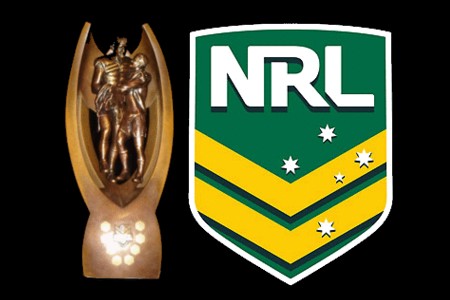Be careful what you wish for, you might just get it!
For years Rugby League was handcuffed by poor administration. The feeling was that the game needed to move away from an administration run by former footballers. The game needed to be turned into a business, run by business types, and when that happened Rugby League would prosper.
The 2014 Auckland 9’s is a turning point in the games history. It is the first step made by the an administration thinking along the lines of a business rather than a sports administration.
Rugby League administrations now look at the sport as a product. They have a product to sell. They package that product into content that can be sold off to broadcasters, sponsors and these days even venues looking to provide a product to their own customers.
A decade of conservative thinking and running the sport on a tight budget allowed the NRL to consolidate its position. It allowed clubs to gain some financial stability and for everyone to put their efforts into making the NRL the best it could possibly be.
Now that the game is flushed with funds the NRL has been left with a really nice product that can easily be packaged up and sold in various forms, whether it be a Rugby League 9’s tournament, the NRL club competition, State Of Origin, the World Cup, the World Club Challenge….it’s content of a high quality that is very easy to sell off to the highest bidder.
The Auckland 9’s showed that a private promoter can take Rugby League content and generate millions of dollars over the course of one weekend with it. While the NRL was more than happy with the result, next time around you can expect the league itself to take on the role as the promoter and pocket all of the profits rather than having to share them with a third party.
We have already seen some of this type of thinking being discussed.
Talk of a Summer 9’s circuit being set up is simply the NRL looking to sell off-season content. Now that they know there is a customer base willing to pay for Rugby League content that does not involve the sports elite talent, they know they can generate money out of a Rugby League 9’s circuit.
It is a pure numbers game. There are only so many players an NRL team can put on the field at any one time. If you can tap into the fringe at of that talent, and sell those players at a premium rate, you’re growing your business by making the most of what you have already got.
I expect that we will now see the National Rugby League look at all sorts of possibilities that are all meant to generate money for the game.
Think of boxing events featuring Rugby League players we have seen in the past. In the future we might see these events where the NRL itself is the promoter.
Remember the match race to find “Australia’s fastest athlete” a few years ago? We might see the NRL set up something like that. Even if it’s just a half hour TV spot that can be sold off to a sponsor and that culminates in a 100 meter foot race, if the NRL thinks it can sell that content and make a profit, they will do it.
Here is where it gets tricky though…
The NRL doesn’t just run a business, it is also a sports administration. There will be times when the NRL will be forced to make a decision on what is the best thing to do for the game, and what is the best thing to do for the business.
At the end of the day you want Rugby League to become bigger and better. You want the full on 13 a side game to prosper. As the National Rugby League starts to look at new ways to generate money it also needs to make sure it doesn’t undermine it’s base product.
It’s all well and good to have a Rugby League 9’s circuit, but if that competition starts to take away from the NRL season itself, you start to run into problems. The business side of things might be great, but if we start seeing an effect on the rest of the game it may be time for a rethink.
We have seen something similar occur in Cricket. Twenty/20 Cricket has been a huge success in terms of the money it has generated, but many feel it has come at the cost of One Day Cricket and even Test Cricket.
Sure the IPL and Big Bash League have been great, but outside of generating a lot of money or exposure, what have they done for the sport itself? How many Test or even One Day teams are out there these days that are any good? Has the money generated by Twenty/20 Cricket helped the game at all, or has it just lined the pockets of the very few organisations thar have made it work?
Generating new income for the sport can not be allowed to undermine the sport itself. That is the dichotomy of a sports administration. It needs to promote a sport and allow it to grow. To do this it needs to generate money. However it can’t generate money at any cost. At the end of the day it needs to fiercely protect it’s base product.
The other issue the National Rugby League faces is where it stands as the world wide leader of the sport.
Any money the NRL makes, the NRL is going to keep. With more clubs, players and money than just about every other Rugby League playing nation combined, the NRL can basically do what it wants.
We see this manifest itself every time the NRL brings in a new rule change. The NRL answers to no one, it’s not like it needs to apply to a higher governing body to change the rules of the game.
The NRL changes rules based on the needs of it’s elite 16 team competition. Where does that leave the rest of the sport though? There are plenty of times when the NRL changes rules to combat tactics used by NRL clubs that simply don’t apply to the rest of the Rugby League playing world outside of the NRL competition itself.
If the NRL see’s itself as a stand alone entity, free of the constraints of the wider game, could we see the NRL turn into it’s own variation of a Rugby code over time? A hybrid game, not Rugby Union, but not quite the same Rugby League the rest of us are playing?
That is where the National Rugby League needs to tread carefully. That is where the sports administration needs to overrule the business.
For many, many years Rugby League enjoyed a sense of stability. We knew the teams we had, we know where the elite players were all going, we knew there was one prize on offer, we knew where the focus was.
Now we have entered a new era that could see multiple competitions with different rules, different teams and different sets of players.
Being a Rugby League fan will no long be about who you play for or what NRL team you support, it will also be about which form of the game you like, which events you follow, and which ones you give a miss.
In growing the business, Rugby League will open itself up to new pressures. The almighty dollar will lead the way, and trailing behind, the sport will follow.
The big business era has arrived. Be careful what you wish for….









